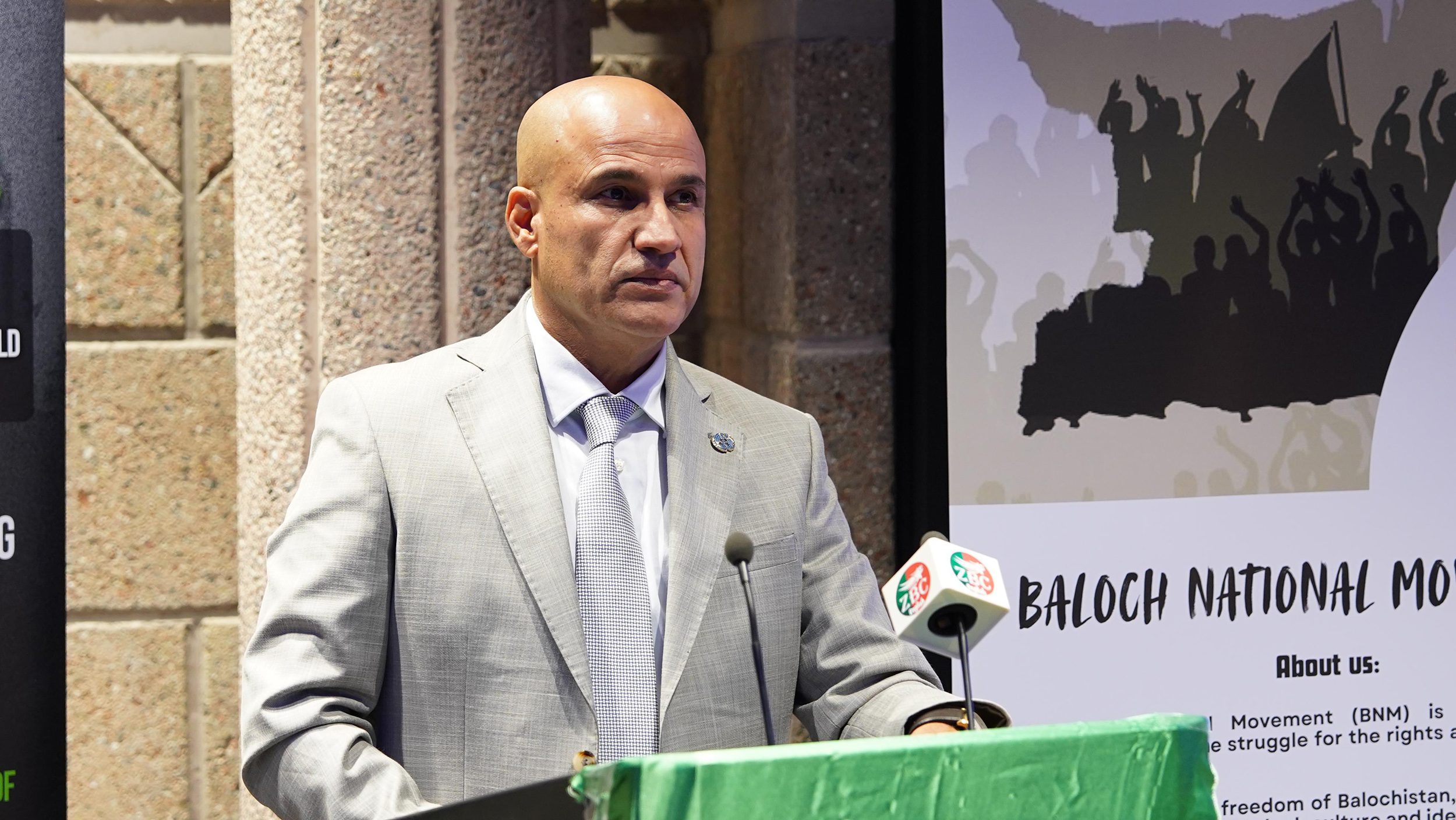The long struggle of the brave Baloch people for their freedom and liberty has led to severe human rights violations, including enforced disappearances, extrajudicial killings, arbitrary detentions, and torture. The most alarming of all these atrocities is the thousands of Baloch who have been forcibly disappeared by the Pakistan Army with impunity.
Not a single individual or institution has been held accountable for these heinous crimes by the courts of Pakistan. Economically, Balochistan’s rich natural and mineral resources have attracted exploitation, primarily by Pakistan and China under the China-Pakistan Economic Corridor (CPEC) project. Yet, the local Baloch population remains marginalized, facing a lack of access to basic needs like clean drinking water, healthcare, education, and infrastructure.
Although Balochistan produces a significant amount of natural gas, most of the regions’ population does not benefit from it. This highlights the deep inequalities compared to more developed regions like Punjab. The exploitation, deprivation, and systematic injustice suffered by the Baloch people have persisted for decades.
Similar to the Baloch, the Pashtun people, whom I represent, have been enduring the same oppression for at least the past 20 years. Pakistan continues to exploit the natural and mineral resources of the Pashtun ethnic minority. In Khyber Pakhtunkhwa, for example, despite being an energy-surplus province, the area experiences hours of daily load-shedding. Khyber Pakhtunkhwa produces 5,700 megawatts of the cheapest hydroelectricity at less than two Pakistani rupees per unit, but the same electricity is resold to locals at 70 rupees. Even the constitutionally guaranteed royalty is not paid to the province.
Pakhtunkhwa provides more than half of the oil produced in Pakistan, yet the refineries are located in Punjab, depriving the Pashtun people of jobs and revenue. These anti-Pashtun policies have led to severe social, economic, and political consequences, forcing over 10 million Pashtuns to migrate abroad in search of work.
Rather than addressing our rightful demands for access to natural resources, Pakistan engages in targeted and extrajudicial killings of Pashtuns. Recently, Pakistan imposed a ban on Manzoor Ahmad Pashtin and 29 other key members of the Pashtun Tahafuz Movement (PTM) from entering Balochistan, in violation of both international law and Pakistan’s own constitution. The ban appears to stem from the government’s fear of the planned grand Jirga of Pashtuns on October 11, aimed at addressing the gross human rights violations committed against Pashtuns and developing a comprehensive strategy for their protection—social, political, and economic.
In Khyber Pakhtunkhwa, the tension between local law enforcement and the Pakistan Army has escalated, with police officers accusing the military of being involved in targeted killings, sponsoring terrorism, and supporting the Taliban. The police, who serve as the first line of defense against terrorism, are being targeted by the Pakistan Army, which is exacerbating the already precarious security situation in the region.
Years ago, it would have been unthinkable that even Pashtuns could become victims of the Pakistan Army’s inhumane practices. However, the emergence of the Pashtun Tahafuz Movement has brought these issues to the international community, including the United Nations. Despite interventions by the Supreme Court of Pakistan, enforced disappearances of both Baloch and Pashtuns continue, underscoring the need for urgent international attention.
On January 1, 2024, a three-member bench of the Supreme Court of Pakistan ordered a detailed report on missing persons from the Commission of Inquiry on Enforced Disappearances (COIED). The commission reported 10,078 cases of enforced disappearances, with 3,485 cases from Khyber Pakhtunkhwa and 2,752 cases from Balochistan. However, the true number of missing persons in Balochistan is likely much higher, as many cases remain undocumented.
It is ironic that prominent Pakistani human rights organizations, such as the Human Rights Commission of Pakistan and individuals like Amna Masood Janjua, chairperson of the Defense of Human Rights of Pakistan, have remained largely silent on the enforced disappearances of Pashtuns. In reality, we estimate that the number of missing Pashtuns exceeds 32,000, with many having been killed or gone missing during the so-called war on terror.
Over the past two decades, Pakistan has committed gross human rights violations, including enforced disappearances, extrajudicial killings, arbitrary detentions, and torture. The Pakistani military has killed 80,000 innocent Pashtuns using F-16 jets, helicopter gunships, and heavy artillery. Over 200,000 homes, 25,000 shops, and large parts of the infrastructure in Khyber Pakhtunkhwa and the former FATA have been destroyed by the Pakistan Army.
We remain trapped between the Taliban fanaticism to our west and the Pakistani-Punjabi militarism to our east. In response, we have submitted cases of enforced disappearances, extrajudicial killings, and torture to the United Nations Human Rights Council (UNHRC). Thanks to the efforts of UNHRC working groups and special rapporteurs, our grievances have been conveyed to the government of Pakistan.
In collaboration with the UN, we submitted a comprehensive list of Pashtun missing persons, including 300 specific cases of enforced disappearances through special procedures. Numerous letters have been addressed to Pakistan regarding these human rights violations.
It is essential that all oppressed nations within Pakistan—Pashtuns, Baloch, Sindhis, and Kashmiris—coordinate their efforts and bring the issue of enforced disappearances to the international community, particularly organizations like the United Nations. We demand the establishment of a Truth and Reconciliation Commission under UN oversight to investigate the war crimes and human rights abuses committed by the Pakistan Army in Khyber Pakhtunkhwa, Balochistan, and Sindh.



